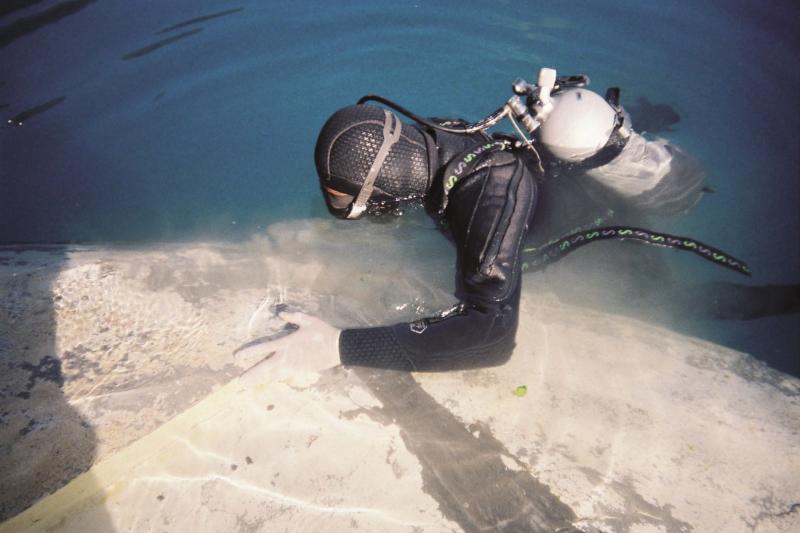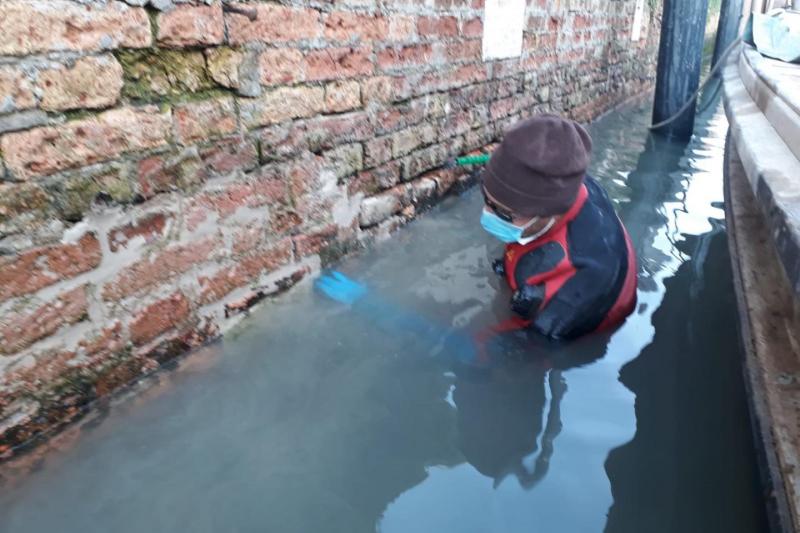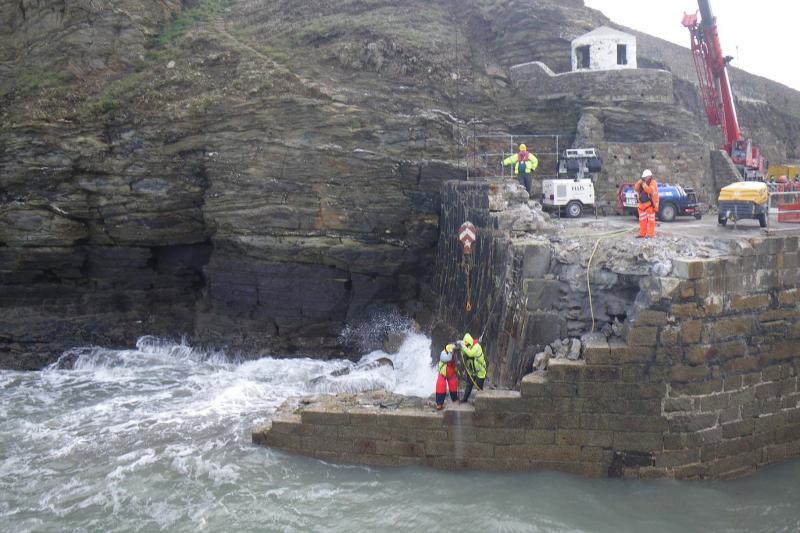Water & sanitation
Marine Works
Works
Addressing constraints related to the marine environment

The use of underwater concreting is essential for all maritime and hydraulic construction works. Placing mortar underwater requires a fast-setting material with good adhesion. It's worth noting that the primary challenge for formwork, reinforcement placement, and underwater concreting is that they are carried out blindly. Sometimes, the assistance of one or more divers may be required. Underwater concreting can also be used for renovation projects.
Indeed, seawater can become a source of aggression towards concrete – chemical attacks due to pollution, mechanical forces from waves, climatic changes in temperature, and biological impact from microorganisms. Concrete structures, depending on their level of submersion and exposure in the marine environment, will face different types of aggression, resulting in various forms of deterioration such as cracks, spalling, rust stains, and more.
Solution
The natural cement PROMPT Vicat has numerous qualities that make it particularly suitable for repair work in water-related areas, such as sealing cracks, assembling watertight partitions, and blinding waterways, thanks to its rapid setting and high strength.
Furthermore, the quick setting and quality of the natural cement PROMPT Vicat allow it to be used on all construction sites exposed to the sea, even if interventions must be carried out urgently. Moreover, it complies with the NF P15-314 standard "cement for sea works".
Technique
Natural PROMPT Vicat cement can be used in the form of mortar or concrete. It's important to note that in certain cases, using pure paste may be necessary, as in the case of waterway sealing. Keep in mind that the required waterproofing and resistance to seawater qualities will necessitate a higher dosage of natural PROMPT Vicat cement.
Fields of application

PROMPT natural cement can be used for marine-related projects such as dykes, lighthouses, floors, and ports. It also enables various types of interventions, like sealing PVC pipes in concrete manholes. Beyond marine environments, it offers the advantage of adaptability to various types of structures, including repair work involving mortars and concrete in sewers, stormwater networks, channels, drains, manholes, canals, and even agricultural silos.
Advantages of its application

PROMPT natural cement enables the placement of concrete underwater while minimizing the washing out of concrete and the dispersion of binders. This is due to its numerous advantages, such as rapid setting and hardening, excellent durability, resistance to aggressive waters, adjustable initial setting time, and its capability to withstand seawater (NF P 15-314). Its efficient intervention, effective waterproofing, and adhesion on various surfaces make it an ideal material for such projects. Additionally, it presents an economical solution.
Advices
If underwater concreting is carried out in an area where the water is in motion, such as during rough weather or with waves, measures need to be taken to prevent concrete washout.
Achievements
Product
Discover everything about PROMPT natural cement
The only cement with strengths at the end of setting, it allows for the quickest return to service. In formulations, it also acts as a powerful accelerator for all hydraulic binders (lime, Portland cement, calcium sulfoaluminate cement, calcium aluminate cement).
